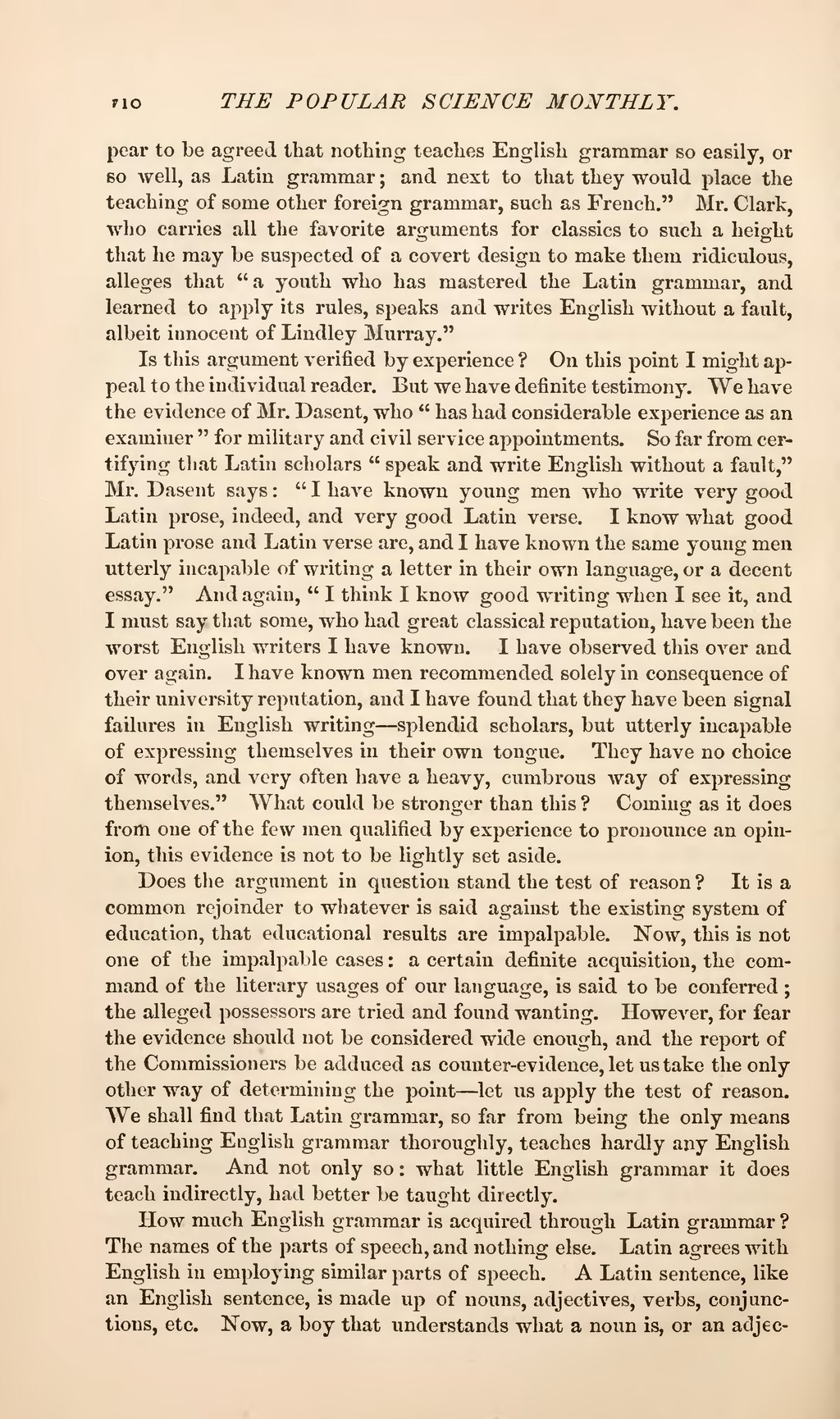pear to be agreed that nothing teaches English grammar so easily, or so well, as Latin grammar; and next to that they would place the teaching of some other foreign grammar, such as French." Mr. Clark, who carries all the favorite arguments for classics to such a height that he may be suspected of a covert design to make them ridiculous, alleges that "a youth who has mastered the Latin grammar, and learned to apply its rules, speaks and writes English without a fault, albeit innocent of Lindley Murray."
Is this argument verified by experience? On this point I might appeal to the individual reader. But we have definite testimony. We have the evidence of Mr. Dasent, who "has had considerable experience as an examiner" for military and civil service appointments. So far from certifying that Latin scholars "speak and write English without a fault," Mr. Dasent says: "I have known young men who write very good Latin prose, indeed, and very good Latin verse. I know what good Latin prose and Latin verse are, and I have known the same young men utterly incapable of writing a letter in their own language, or a decent essay." And again, "I think I know good writing when I see it, and I must say that some, who had great classical reputation, have been the worst English writers I have known. I have observed this over and over again. I have known men recommended solely in consequence of their university reputation, and I have found that they have been signal failures in English writing—splendid scholars, but utterly incapable of expressing themselves in their own tongue. They have no choice of words, and very often have a heavy, cumbrous way of expressing themselves." What could be stronger than this? Coming as it does from one of the few men qualified by experience to pronounce an opinion, this evidence is not to be lightly set aside.
Does the argument in question stand the test of reason? It is a common rejoinder to whatever is said against the existing system of education, that educational results are impalpable. Now, this is not one of the impalpable cases: a certain definite acquisition, the command of the literary usages of our language, is said to be conferred; the alleged possessors are tried and found wanting. However, for fear the evidence should not be considered wide enough, and the report of the Commissioners be adduced as counter-evidence, let us take the only other way of determining the point—let us apply the test of reason. We shall find that Latin grammar, so far from being the only means of teaching English grammar thoroughly, teaches hardly any English grammar. And not only so: what little English grammar it does teach indirectly, had better be taught directly.
How much English grammar is acquired through Latin grammar? The names of the parts of speech, and nothing else. Latin agrees with English in employing similar parts of speech. A Latin sentence, like an English sentence, is made up of nouns, adjectives, verbs, conjunctions, etc. Now, a boy that understands what a noun is, or an adject-
